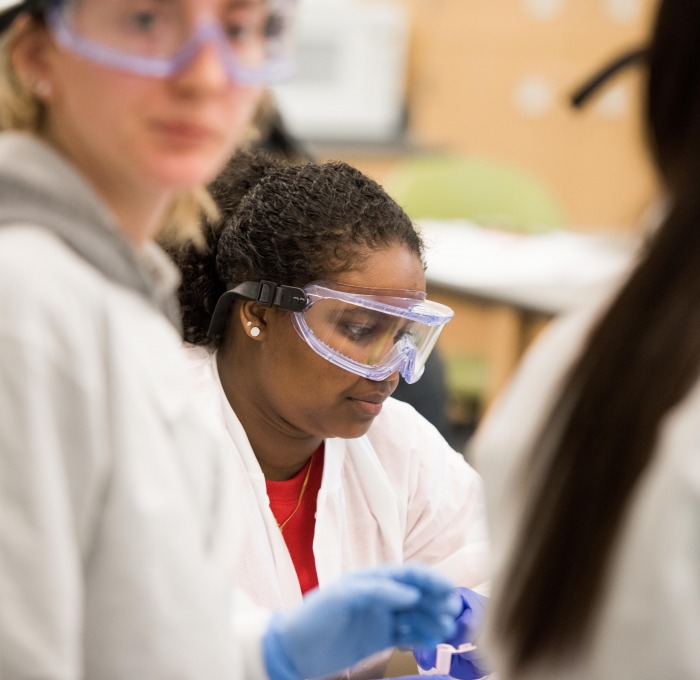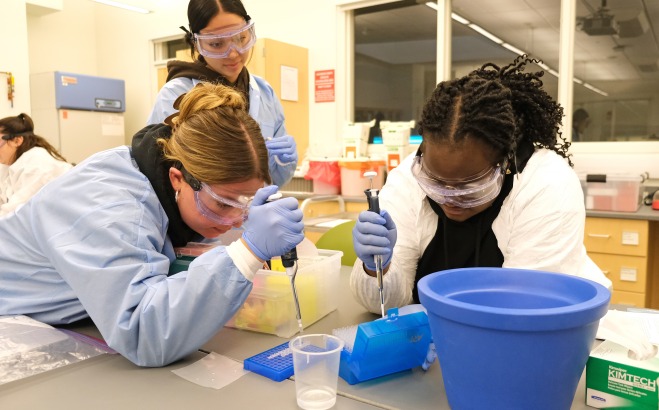
In Short
The Health Sciences concentration addresses the increased interest in health professions and is designed to prepare students for pursuing post-graduate studies.
Program Overview
In addition to the core requirements for the bachelor of science in biology, the curriculum for the health sciences concentration is based on the student's intended career path.
Core biology courses involve student laboratory work to develop the skills of scientific inquiry. Student training includes a strong foundation in bioethics which is fostered within in the curriculum. The University's pre-health advisor is available as a resource to students in this concentration.
Experiential Opportunities
Internships
Study Abroad
Curriculum and Other Information
- BS, Health Sciences Concentration, Biology - Program information from the University Catalog.
- Four-Year Plan of Study - Required and elective courses for program completion.
The concentration includes all of the requirements of the biology major. Among the six biology electives, students must take BIOL 3450: Biochemistry. Students should choose the remaining electives based on their intended career path and are strongly encouraged to consult the prerequisites for the particular professional degree program. The University’s pre-health advisor is available as a resource to students in this concentration.
In addition to the six advanced biology electives and capstone, students with the concentration in health sciences must also take BIOL 1200: Anatomy and Physiology I and BIOL 1300: Anatomy and Physiology II.
The 2015 MCAT revision and the proposed medical school admission requirements also suggest that medical school applicants need to have additional competencies in the following:
- Cellular biology
- Molecular biology
- Microbiology
- Statistics
- Psychology
- Sociology
To fulfill these requirements, the following courses are strongly recommended as electives for those who are interested in applying to M.D. or D.O. programs:
- Microbiology (BIOL 2700 or BIOL 3900)
- Applied Statistics (MATH 1700)
- Introduction to Psychological Science (PSY 1100)
- Introduction to Sociology (SOC 1100)
Students are prepared to continue their education in health professional programs, such as:
- Allopathic medicine
- Osteopathic medicine
- Dentistry
- Veterinary medicine
- Optometry
- Podiatric medicine
- Chiropractic medicine
- Naturopathic medicine
- Nutrition
- Physician assistant
- Pharmacy
- Physical therapy

